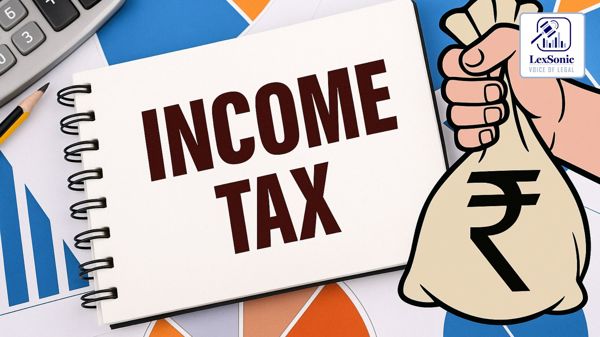Bombay High Court Overturns Order to Implead Partners as Accused in Income Tax Offence Case.
18 July 2025
Income Tax >> Tax Laws
The Bombay High Court has allowed three Criminal Revision Applications in M/s. Shah Rameshchandra Nihalchand & Co. & Others v/s S. Bose, Commissioner of Tax-13, Mumbai & Another, setting aside a Sessions Court order that sought to add partners of a firm as accused in a long-standing Income Tax offence case. The High Court found that the conditions for impleading them as accused under Section 319 of the Criminal Procedure Code (Cr.P.C.) were not met, particularly given the lack of prior sanction as required by the Income Tax Act and the existing record.
The case dates back to a 1982 search by Customs and Income Tax Authorities at a partnership firm's premises, leading to the seizure of assets and books of accounts. The Commissioner of Income Tax (CIT) subsequently filed three complaints against the firm and its then-partner, Kapoorchand Jain, for alleged offences under Sections 276C and 277 of the Income Tax Act for the assessment years 1981-82, 1982-83, and 1983-84.

Upon the demise of Kapoorchand Jain, the CIT applied to have his sons (Applicant Nos. 2 to 4) represent the firm. This was allowed by the Metropolitan Magistrate in 1996, with the explicit understanding that they were not being brought on record as "accused" but merely as representatives of the firm. This order was not challenged and thus became final.
However, in 2008, the CIT filed another application under Section 319 Cr.P.C., seeking to implead Applicant Nos. 2 to 4 as "accused" in the ongoing trial. The Metropolitan Magistrate dismissed this application in 2009, primarily on the ground that no sanction from the Commissioner of Income Tax had been obtained against them for proceeding as accused. The Magistrate also noted that Kapoorchand Jain was treated as the partner in charge at the time the original complaint was filed.
The CIT challenged this dismissal before the Sessions Court, which, in November 2011, set aside the Magistrate's order and allowed the application to treat Applicant Nos. 2 to 4 as accused. This decision was then challenged by the partners in the present Criminal Revision Applications before the High Court.
The High Court noted the consistent non-appearance of the Respondent-Commissioner of Income Tax during multiple hearings, compelling the court to proceed with the final hearing.
The High Court, in its detailed reasoning, highlighted several key points:
- Prior Concession by CIT: The Court emphasized that in 1996, the CIT had explicitly stated and the Magistrate had accepted that Applicant Nos. 2 to 4 were being brought on record not as accused but as representatives of the firm. This order had attained finality, and the CIT could not now seek to add them as accused using Section 319 Cr.P.C.
- Lack of Sanction: The Court underscored the mandatory requirement of prior sanction under Section 279 of the Income Tax Act to prosecute a person for the alleged offences. No such sanction was obtained against Applicant Nos. 2 to 4, rendering the Section 319 Cr.P.C. application "without jurisdiction." The Court cited the Supreme Court's ruling in Surinderjit Singh Mand & Anr. v. State of Punjab & Anr. (2016) which held that even for Section 319 Cr.P.C., mandatory sanctions must be complied with.
- Prior Knowledge of CIT: The Court observed that the Income Tax Department was aware of the firm having multiple partners, including Applicant Nos. 2 to 4, even before filing the original complaint, as evidenced by Form 12 filed by the firm. Therefore, the argument that this information surfaced for the first time during evidence to justify a Section 319 Cr.P.C. application was not permissible.
- Insufficient Evidence for Section 319 Cr.P.C.: The High Court meticulously examined the evidence of Mr. A.P. Shrivastava, Assistant Director of Income Tax, which was the basis for the Section 319 Cr.P.C. application. The Court found that this evidence merely reiterated details of the search and confirmed the firm's structure, but it did not "remotely infer" that Applicant Nos. 2 to 4 had committed an offence or were "in charge of and responsible to the firm for the conduct of the business" or that the offence was committed with their "consent or connivance or was attributable to any neglect on their part."
- Conjoint Reading of Laws: The High Court emphasized that Section 319 Cr.P.C. must be read harmoniously with Section 278B of the Income Tax Act, which deals with offences by companies (including firms) and specifies the conditions for holding partners liable. The evidence did not satisfy the requirements of Section 278B, which mandate establishing that the partners were in charge or responsible, or that the offence occurred with their consent, connivance, or neglect.
Citing relevant Supreme Court and Kerala High Court judgments (State of Karnataka v. Pratap Chand and Ors. (1981) and M. A. Unneerikutty & Ors. v. Deputy Commissioner of Income-Tax (Assessment) (1996)), which clarify the meaning of "in-charge" in such contexts, the High Court concluded that the Sessions Judge erred in allowing the application under Section 319 Cr.P.C.
Accordingly, the High Court allowed the Criminal Revision Applications, setting aside the Sessions Court's order and effectively quashing the attempt to implead Applicant Nos. 2 to 4 as accused in the criminal proceedings.
Code of Criminal Procedure, 1973
